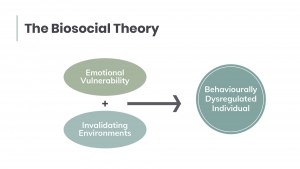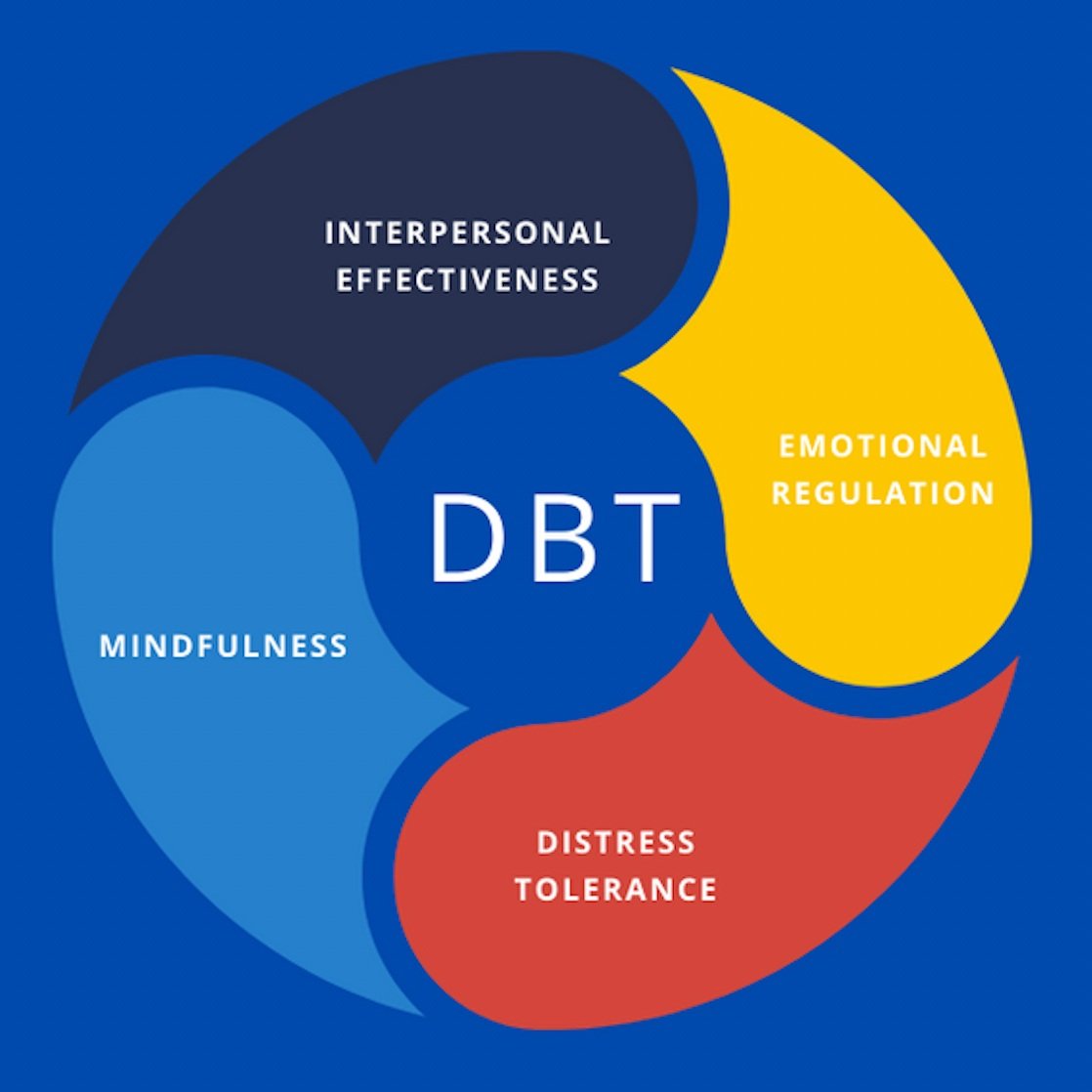Journey to Self-Discovery: DBT London's Thoughtful Therapy
Journey to Self-Discovery: DBT London's Thoughtful Therapy
Blog Article
Nurturing Emotional Resilience and Self-Awareness With Dialectical Behavior Therapy (Dbt) Services: Your Trip to Inner Peace
In the quest of psychological strength and self-awareness, the utilization of Dialectical Practices Treatment (DBT) services offers a structured strategy that incorporates different fundamental principles to foster internal tranquility. Comprehending the core tenets of DBT offers a strong structure for people seeking to navigate their psychological landscape with greater clearness and control.
Understanding DBT Fundamentals
A thorough understanding of Dialectical Behavior modification (DBT) fundamentals is necessary for understanding its concepts and application in emotional strength - DBT London. DBT is a healing strategy created by Marsha M. Linehan to assist people battling with emotional dysregulation, frequently related to conditions like borderline personality condition. The core principles of DBT revolve around four main modules: mindfulness, distress resistance, emotion law, and social effectiveness. Mindfulness is the foundation of DBT, highlighting existing minute awareness without judgment. Distress tolerance abilities furnish people to withstand and survive crises without making impulsive decisions. Emotion regulation techniques assist people identify and handle intense feelings properly. Interpersonal efficiency skills instruct people how to insist their requirements while maintaining partnerships. By comprehending these fundamental aspects of DBT, individuals can cultivate emotional strength by learning to handle their feelings, navigate relationships, and handle traumatic scenarios a lot more effectively. This foundational knowledge sets the phase for the effective application of DBT concepts in advertising psychological wellness and internal peace.

Establishing Emotional Law Skills
Developing proficiency in emotional guideline abilities is important for improving one's capability to navigate challenging circumstances and handle extreme feelings successfully. Psychological regulation involves the capability to recognize, comprehend, and handle one's feelings in a healthy and positive way. By developing these skills, people can grow a greater sense of self-discipline and strength in the face of hardship.
One key element of establishing psychological regulation skills is learning to recognize and label various emotions accurately. This self-awareness allows individuals to pinpoint the source of their feelings and react properly. Additionally, practicing mindfulness methods can aid individuals stay existing in the moment and avoid frustrating emotions from pirating their actions and ideas.
Furthermore, carrying out healthy and balanced coping methods, such as deep breathing exercises, modern muscle mass leisure, or basing techniques, can give people with effective devices to manage their emotions throughout times of distress. By regularly practicing these abilities, people can construct a solid foundation for psychological resilience and self-awareness, inevitably cultivating internal peace and well-being.

Enhancing Interpersonal Performance
With a solid foundation in emotional guideline skills, individuals can currently focus on honing their social efficiency to navigate social interactions with greater simplicity and success. Interpersonal performance, a crucial component of Dialectical Behaviour Treatment (DBT), gears up people with the necessary tools to interact assertively, established limits, and develop much healthier relationships. By discovering to reveal requirements and viewpoints plainly while appreciating the perspectives of others, people can cultivate more significant connections and reduce conflicts in their communications.

Inevitably, boosting social efficiency via DBT empowers individuals to navigate different social contexts with empathy, durability, and credibility, cultivating even more meeting and harmonious partnerships in their lives.
Practicing Mindfulness Techniques
Mindfulness methods play an essential function in enhancing psychological policy and advertising self-awareness in people going through Dialectical Behavior Therapy (DBT) By promoting present-moment understanding without judgment, mindfulness encourages people to observe their thoughts and feelings with acceptance, resulting in a deeper understanding of their internal experiences. With regular method of mindfulness methods such as mindful breathing, body scans, and mindful monitoring, individuals can establish an increased feeling of self-awareness and psychological resilience.
One essential mindfulness method utilized in DBT is the "smart mind" principle, which encourages individuals to integrate their psychological and logical minds to make balanced decisions - DBT London. This practice allows people to browse psychological triggers with a calmer and extra rational method, lowering spontaneous reactions. In addition, mindfulness techniques help in basing people in the here and now minute, guiding them far from rumination on previous occasions or stress and anxiety concerning the future
Structure Distress Resistance Methods
To improve emotional strength in people undergoing Dialectical Practices Treatment (DBT), it is important to concentrate on building effective distress tolerance approaches. Developing these strategies is important for individuals to browse via difficult circumstances without coming to be overwhelmed. Distress resistance skills aid individuals deal and stand up to with extreme feelings, dilemmas, or circumstances where they might be tempted check these guys out to engage in unsafe behaviors.
One key distress resistance approach often showed in DBT is the ACCEPTS phrase, which stands for Activities, Adding, Contrasts, Emotions, Pushing away, Ideas, and Sensations. These skills give people with a tool kit of methods to distract themselves from traumatic feelings or situations in a healthy way.
Furthermore, finding out just how to self-soothe via activities like deep breathing workouts, taking a warm bath, or participating in hobbies can likewise aid construct distress tolerance. By integrating these approaches right into everyday method, people can better manage tension, manage emotions, and eventually cultivate a higher sense of emotional strength.
Verdict
To conclude, the trip towards inner peace via Dialectical Behavior Therapy (DBT) includes recognizing its principles, creating emotional guideline abilities, improving social performance, practicing mindfulness strategies, and structure distress tolerance strategies. By using these methods, people can support emotional strength and self-awareness, leading to a higher sense of internal tranquility and well-being. DBT London. Incorporating DBT solutions into one's life can supply valuable devices and resources for managing feelings and partnerships properly
Comprehending the core tenets of DBT supplies a solid foundation for individuals seeking to browse their psychological landscape with greater clarity and control. By understanding these basic facets of DBT, people can grow emotional resilience by learning to handle their emotions, navigate relationships, and cope with stressful situations more successfully.Mindfulness strategies play a crucial function in improving emotional law and advertising helpful resources self-awareness in people undertaking Dialectical Practices Therapy (DBT)One basic mindfulness technique used in DBT is the "smart mind" principle, which encourages individuals to incorporate their psychological and sensible minds to make well balanced decisions.To boost psychological resilience in individuals going through Dialectical Practices Therapy (DBT), it is necessary to concentrate on building effective distress resistance strategies.
Report this page